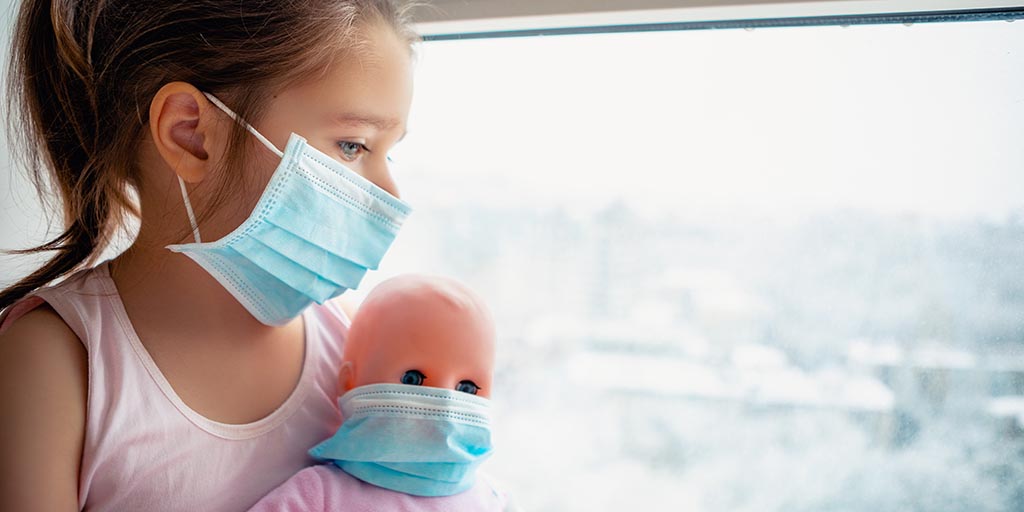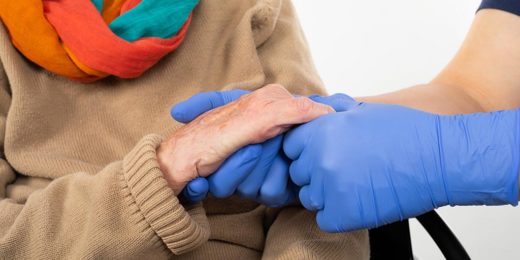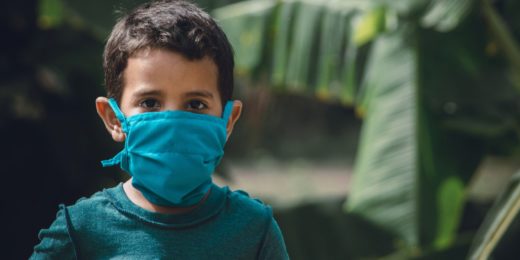The first thing Stanford Medicine pediatrician Alan Schroeder, MD, wants you to know about multisystem inflammatory syndrome in children (MIS-C) is that the condition is rare.
This mysterious illness has affected children who had the virus that causes COVID-19, even if the virus had previously gone undetected. The condition has been known to inflame different parts of the body, including the heart, lungs, kidneys, brain, skin, eyes or gastrointestinal organs, and to cause such symptoms as vomiting, diarrhea, neck pain and rash.
There have been only 250 cases reported by health departments in the United States and only one in the San Francisco Bay Area. Yet this new disease is confounding and alarming clinicians and researchers alike, because it was initially believed the virus didn't cause serious illness in children.
I spoke with Schroeder about MIS-C for my latest 1:2:1 podcast. This Q&A is condensed and edited from our conversation.
How rare is MIS-C?
A handful of children have been really, really sick with this. It is serious. Yet, I think it's worth putting that in context. Of the threats to children, in general, posed by gun violence, car accidents, suicide and mental health issues, it's not even comparable.
Kids remain really spared from this. It has made a lot of people nervous because prior to MIS-C, there was this notion that kids weren't affected by COVID-19, but is still an incredibly rare phenomenon.
It's been compared to another rare disease in children, Kawasaki disease. How are they similar and what separates them?
Kawasaki disease is an inflammatory syndrome that may be triggered by viruses; we really don't understand the exact cause. MIS-C is thought to be triggered by COVID-19 and has some similarities to Kawasaki disease, yet there are also a number of differences.
Kawasaki is classically an infant and toddler condition. Most kids affected are under 5 and tend not to be seriously sick. MISC-C has been mostly in older kids, around 8 years old; and on average seem to be more seriously ill, requiring intensive care unit and blood pressure support.
Adults who become seriously ill with COVID-19 are known to have co-morbidities -- other conditions that make them sicker from the virus. Is that also true for children with MIS-C?
Comorbidities have not been particularly common in children with this illness the way they have been in adults sick with COVID-19, where older age and chronic conditions, such as diabetes and hypertension have been associated with more serious illness. So far, maybe it's a little bit more common in children who are overweight. It's an important question and something that researchers are trying to understand right now.
I hear you saying no one should panic.
That's right. I worry that MIS-C is still so vague there is the risk of diagnosing the condition in kids who have run-of-the-mill viral infections, or possibly neglecting other illnesses that are treatable.
As someone who does a lot of research on over-testing, over-treatment and over-diagnosis, I am concerned that MIS-C might produce referrals for kids that have fairly mundane fever and rash conditions.
That, in turn, could lead to treatments that are potentially harmful and could consume much-needed resources. For example, intravenous immunoglobulin is often used to treat MIS-C, but there are concerns currently about a national shortage.
We need to make sure, as we move forward, to be really careful about making the correct diagnosis, treating kids who need to be treated but not treating those who don't.
Do you worry about the impact that COVID-19 is having on vaccinations for kids?
Routine vaccinations are down substantially. It's not a result of the anti-vaxxer movement; people are just afraid to go to the doctor and get routine well-child checks because of COVID-19. The last thing we need is an outbreak of pertussis (whooping cough), the measles or Haemophilus influenzae.
If you're really concerned about safety, call your doctor. A lot of clinics are separating urgent care from well-child visits. We need to make sure kids are getting vaccinated. That would go a long way in protecting the health of children.
Listen to more 1:2:1 podcasts on COVID-19 from Paul Costello at https://soundcloud.com/stanfordmed/sets/covid-19
Image by Julia






